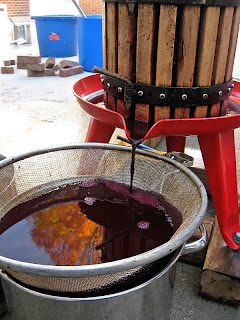Our aging golden retriever sometimes does something that is both amusing and annoying. Before lying down for one of his frequent naps, Cody Joe often rotates in a tight circle, pawing occasionally at the carpet, until he is satisfied that his resting place has been properly groomed.
It’s instinctual of course. Something hard-wired in Cody’s brain resurfaces at times and reconnects him to his feral past. I doubt, if given the choice, that Cody would trade his cushy life for one that relies on instincts for survival. But maybe it does Cody some good when one of those buried instincts works its way to the surface. Maybe it reminds him of his essential dogness. Maybe it provides a balance by serving as a reminder of the time when his distant ancestors didn’t eat dried pellets out of ceramic bowls, when they weren’t leashed, collared, and fenced, and when they were free to chase small animals around without fear of reprisals from exasperated keepers. Instincts fade but they’re never entirely eliminated and that’s a good thing—for dogs as well as for humans.
 |
| The rational mind takes a sugar reading. |
We modern humans also have cushy lives relative to those of our distant ancestors. Like our domesticated pets, we no longer have to rely on instincts for survival. We have taken the wonderful instrument that Nature has given us—the rational mind—and have honed it into a tool that we have used to create remarkable, life enhancing technology. But in the process we have forgotten about an equally wonderful instrument —our intuitive mind. The intuitive mind is an integral part of our essence, of our humanness. It is what connects us to Nature. It is what gives us access to a higher consciousness. It is what allows us to exist in the present moment. It is what allows us to Be.
“The intuitive mind,” said Einstein, “is a sacred gift and the rational mind is a faithful servant. We have created a society that honors the servant and has forgotten the gift.” I believe that if we are to become completely human we need to find ways to restore the balance between rational and intuitive thinking. We need to find ways to become, in effect, both Thinkers and Be’ers.
 |
| The intuitive mind watches run-off. |
There are ways to restore the balance. Any activity that quiets the rational mind helps restore the balance. Art is one such activity. When we create we are following an instinctive urge to be mindless and when we are mindless, when we have disengaged rational thought processes, we are reconnecting with our essential humanness.
I have often been asked why homebrewing and wine-making have become so popular. Here’s my answer—making beer and wine is an art form that nourishes the intuitive mind. Sure, brewing and wine-making can be technical but at their core both are pretty simple. And the end product, like a symphony or a painting or a Shakespearean sonnet, is divinely inspired and almost magical.
And so the next time someone asks you why you brew beer or why you make wine, tell them that you’re an artist. Tell them that you’re following an instinctive urge to reconnect with your essential nature. Tell them that you are restoring balance in your life.
Of course a wonderful byproduct of this balance restoring activity is that you can drink, and share, the artwork that has been created.
 Steve Siciliano is a merchant, philosopher and writer and is currently putting the finishing touches on his first novel, “Putting Butterfly Wings on The Thinker”. He and his wife and business partner, Barb, live in a fine, ninety-year-old house with Cody Joe and Ellie Mae, a two year-old terrier/lab mix that constantly exasperates them.
Steve Siciliano is a merchant, philosopher and writer and is currently putting the finishing touches on his first novel, “Putting Butterfly Wings on The Thinker”. He and his wife and business partner, Barb, live in a fine, ninety-year-old house with Cody Joe and Ellie Mae, a two year-old terrier/lab mix that constantly exasperates them.
Truly inspired...Cheers :-)
ReplyDeleteNice work staking the terrain...both a refinement and expansion on your previous thinking on 'wine culture'...
ReplyDelete